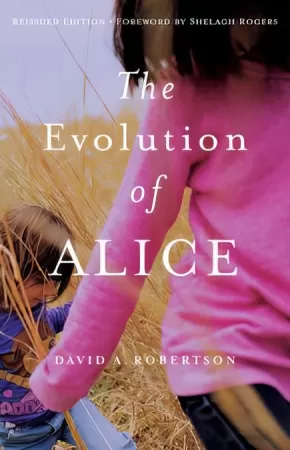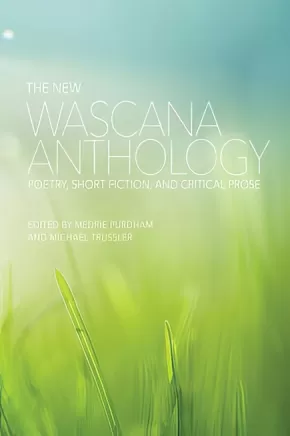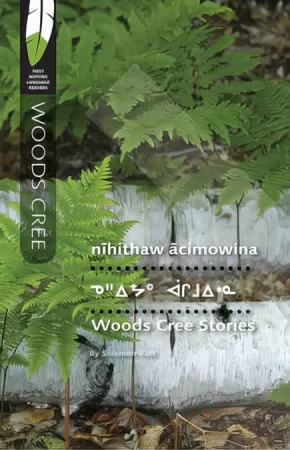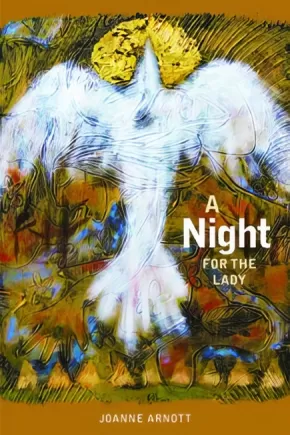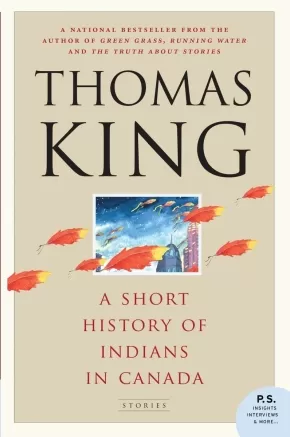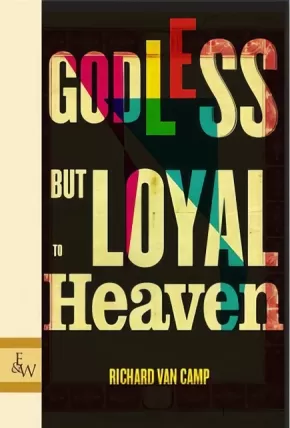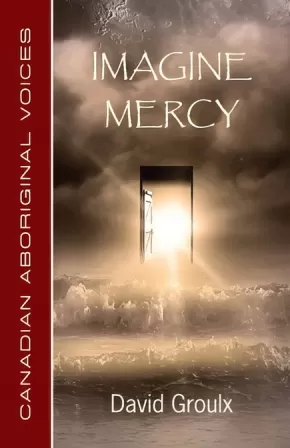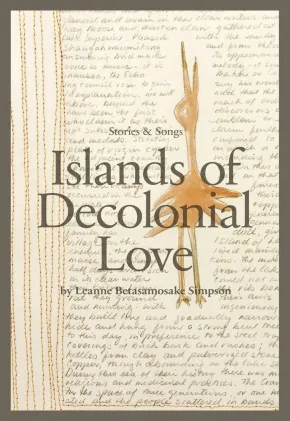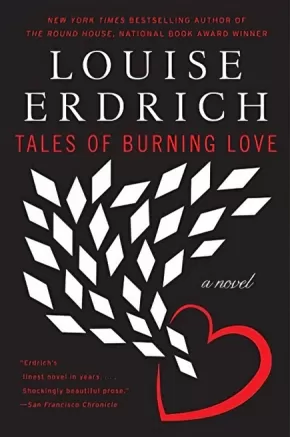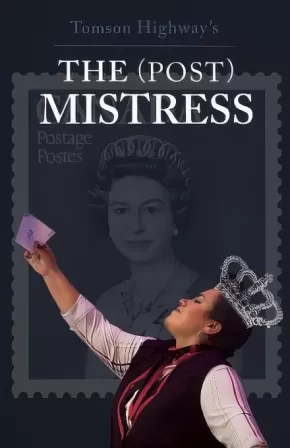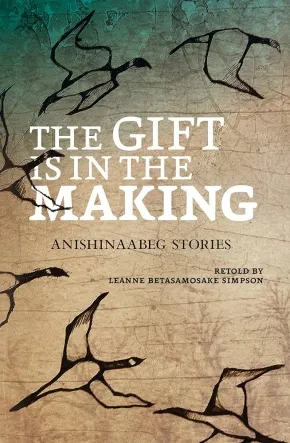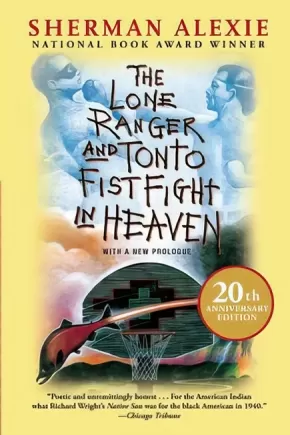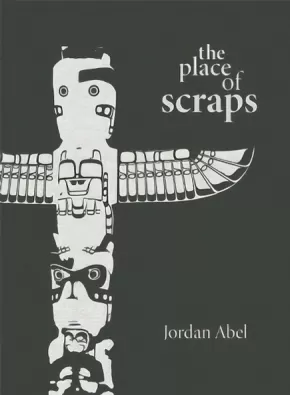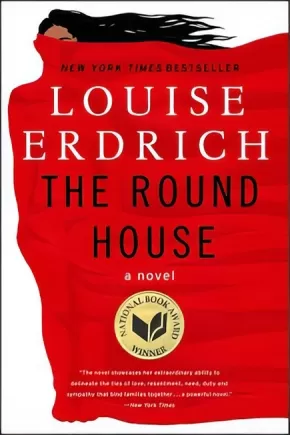Fiction
Synopsis:
This haunting, emotionally resonant story delivers us into the world of Alice, a single mother raising her three young daughters on the rez where she grew up. Alice has never had an easy life, but has managed to get by with the support of her best friend, Gideon, and her family. When an unthinkable loss occurs, Alice is forced onto a different path, one that will challenge her belief in herself and the world she thought she knew. The Evolution of Alice is the kaleidoscopic story of one woman’s place within the web of community. Peopled with unforgettable characters and told from multiple points of view, this is a novel where spirits are alive, forgiveness is possible, and love is the only thing that matters.
Reviews
"So many Manitobans have, like a character in an early chapter, only sped by reserves on the highway. Inviting us into a rich community of characters, which stretches deeper than the headlines most of us associate with reserve life, Robertson is doing a service to everyone who calls Manitoba home. And crafting an engaging story of one family’s recovery from loss — at a time when indigenous peoples are increasingly flexing political, economic and cultural muscle in this country — is a gift for everyone hoping for a better future for our divided country…" - Matthew TenBruggencate, CTV Winnipeg
"Pulsing at the heart of this novel are the warmly rendered inflections of storytelling voices like Gideon’s, at once reflective, vivid, and vernacular. And at the novel’s core, the broken but ultimately healing rhythms of Alice’s 'evolution' – her cycles of loving and suffering, of her family’s living, dying, and ultimately hoping to live anew — bring contemporary experience on the reservation and in the big city achingly, joyfully, and always pungently alive." - Neil Besner, Professor of English, Provost and Vice-President, Academic, The University of Winnipeg
Educator Information
Grades 10-12 English First Peoples.
This 2nd edition has been reissued with a new story by David A. Robertson and foreword by Shelagh Rogers.
Additional Information
216 pages | 5.50" x 8.50" | 2nd Edition
Synopsis:
The New Wascana Anthology is named for the Cree word "oskana," meaning "bones,"* but this anthology is no literary graveyard. It will introduce you to stories, poems, and essays that can be discussed over drinks, or used to impress friends years after leaving English 100 behind.
Offering a taster's choice of the best Canadian writing, with a special focus on Aboriginal and Prairie writers, this anthology includes pieces selected to introduce you to the English literary canon. Going back hundreds of years, the oldest poems included here have no known author, while the youngest writer is a recent university graduate.
Building on the bones of the canon (including all of Canada's Man Booker Prize-winners and newest Nobel Laureate), The New Wascana Anthology features writers such as Flannery O'Connor, Thomas King, Carmine Starnino, and Ursula K. Le Guin who will challenge your worldview. Most importantly, this anthology is about turning the page, opening your mind, and revelling in the pleasures of reading.
*The bones referred to are the bones of plains bison, a species that once numbered in the tens of millions on the Great Plains.
Educator Information
Contains works from Indigenous and non-Indigenous writers.
Table of Contents
Preface
Poetry
Anonymous
Summer is icumen in
Sir Patrick Spens
Mary Hamilton
Geoffrey Chaucer (ca. 1343–1400)
from The Canterbury Tales
Excerpts from General Prologue
Sir Thomas Wyatt (1503–1542)
The Long Love, That in My Thought Doth Harbour
Sir Walter Ralegh (ca. 1552–1618)
The Nymph’s Reply to the Shepherd
Edmund Spenser (ca. 1552–1599)
from Amoretti
30. My love is like to ice
75. One day I wrote her name
Sir Philip Sidney (1554–1586)
from Astrophel and Stella
59. Dear, why make you more of a dog than me?
Michael Drayton (1563–1631)
from Idea
61. Since there’s no help, come let us kiss and part
Christopher Marlowe (1564–1593)
The Passionate Shepherd to His Love
William Shakespeare (1564–1616)
from Sonnets
18. Shall I compare thee to a summer’s day?
20. A woman’s face, with nature’s own hand painted
116. Let me not to the marriage of true minds
130. My mistress’ eyes are nothing like the sun
from As You Like It
All the world’s a stage
John Donne (1572–1631)
A Valediction: Forbidding Mourning
Death be not proud
The Bait
The Flea
Ben Jonson (1572–1637)
Epigram XXII: On My First Daughter
Epigram XLV: On My First Son
Song: To Celia
George Herbert (1593–1633)
Love (III)
John Milton (1608–1674)
When I Consider How My Light Is Spent
from Paradise Lost, Book 1
The Invocation
Anne Bradstreet (1612–1672)
Before the Birth of One of Her Children
The Author to Her Book
Andrew Marvell (1621–1678)
To His Coy Mistress
Anne Finch, Countess of Winchelsea (1661–1720)
To the Nightingale
A Letter to Daphnis, April 2, 1685
Alexander Pope (1688–1744)
The Rape of the Lock
Lady Mary Wortley Montagu (1689–1762)
Addressed to—
Thomas Gray (1716–1771)
Elegy Written in a Country Churchyard
Christopher Smart (1722–1771)
from Jubilate Agno
My Cat Jeoffry
William Blake (1757–1827)
from Songs of Innocence
The Chimney Sweeper
The Lamb
from Songs of Experience
A Poison Tree
London
The Chimney Sweeper
William Wordsworth (1770–1850)
A slumber did my spirit seal
Composed Upon Westminster Bridge, September 3, 1802
I wandered lonely as a cloud
The world is too much with us
Samuel Taylor Coleridge (1772–1834)
Kubla Khan
George Gordon, Lord Byron (1788–1824)
She Walks in Beauty
The Destruction of Sennacherib
Percy Bysshe Shelley (1792–1822)
Ozymandias
John Keats (1795–1821)
La Belle Dame Sans Merci
When I have fears that I may cease to be
Alfred, Lord Tennyson (1809–1892)
Ulysses
Robert Browning (1812–1889)
Porphyria’s Lover
My Last Duchess
Emily Brontë (1818–1848)
Remembrance
Walt Whitman (1819–1892)
When Lilacs Last in the Dooryard Bloom’d
Matthew Arnold (1822–1888)
Dover Beach
George Meredith (1828–1909)
from Modern Love
17. At dinner, she is hostess, I am host
Emily Dickinson (1830–1866)
F479. Because I could not stop for Death
F591. I heard a Fly buzz—when I died
F620. Much Madness is divinest Sense
F1096. A narrow Fellow in the Grass
F1263. Tell all the Truth but tell it slant
Lewis Carroll (1832–1898)
Jabberwocky
Thomas Hardy (1840–1928)
The Ruined Maid
The Convergence of the Twain
The Workbox
Gerard Manley Hopkins (1844–1889)
God’s Grandeur
Pied Beauty
The Windhover
A. E. Housman (1859–1936)
from A Shropshire Lad
XIX. To An Athlete Dying Young
Sir Charles G. D. Roberts (1860–1943)
Tantramar Revisited
Archibald Lampman (1861–1899)
Heat
William Butler Yeats (1865–1939)
The Second Coming
Leda and the Swan
Crazy Jane Talks with the Bishop
Edwin Arlington Robinson (1869–1935)
Miniver Cheevy
Robert Frost (1874–1963)
After Apple-Picking
Mending Wall
Nothing Gold Can Stay
The Silken Tent
William Carlos Williams (1883–1963)
The Red Wheelbarrow
This is Just to Say
Pictures from Brueghel
D. H. Lawrence (1885–1930)
Piano
Snake
Ezra Pound (1885–1972)
In a Station of the Metro
The River Merchant’s Wife: A Letter
Isaac Rosenberg (1890–1918)
Break of Day in the Trenches
Edna St. Vincent Millay (1892–1950)
Elegy before Death
What lips my lips have kissed
Wilfred Owen (1893–1918)
Dulce et Decorum Est
e.e. cummings (1894–1963)
“next to of course god america i
anyone lived in a pretty how town
F. R. Scott (1899–1985)
Lakeshore
Langston Hughes (1902–1967)
The Negro Speaks of Rivers
Harlem
A. J. M. Smith (1902–1980)
The Lonely Land
Far West
Stevie Smith (1902–1971)
Not Waving but Drowning
Earle Birney (1904–1995)
Anglo-Saxon Street
W. H. Auden (1907–1973)
Musée des Beaux-Arts
Theodore Roethke (1908–1963)
My Papa’s Waltz
A. M. Klein (1909–1972)
Heirloom
The Rocking Chair
Dorothy Livesay (1909–1996)
Green Rain
Elizabeth Bishop (1911–1979)
In the Waiting Room
Irving Layton (1912–2006)
The Birth of Tragedy
Dylan Thomas (1914–1953)
Fern Hill
Do Not Go Gentle into That Good Night
P. K. Page (1916–2010)
After Rain
Planet Earth
Robert Lowell (1917–1977)
For the Union Dead
Miriam Waddington (1917–2004)
Advice to the Young
Raymond Souster (1921–2012)
The Lilac Poem
Elizabeth Brewster (1922–2012)
The Night Grandma Died
Eli Mandel (1922–1992)
Houdini
Anne Szumigalski (1926–1999)
It Wasn’t a Major Operation
Don Coles (b. 1927)
Collecting Pictures
Robert Kroetsch (1927–2011)
Meditation on Tom Thomson
Rita Joe (1932–2007)
Axe Handles for Sale
I Lost My Talk
Sylvia Plath (1932–1963)
Daddy
Alden Nowlan (1933–1983)
The Bull Moose
Leonard Cohen (b. 1934)
A Kite Is a Victim
Suzanne
Robert Currie (b. 1937)
Young Boy, Fleeing
Glen Sorestad (b. 1937)
Ten Years
Now That I’m Up
John Newlove (1938–2003)
The Double-Headed Snake
Margaret Atwood (b. 1939)
Backdrop Addresses Cowboy
The Nature of Gothic
This Is a Photograph of Me
Seamus Heaney (1939–2013)
Bog Queen
Digging
The Names of the Hare
Patrick Lane (b. 1939)
Mountain Oysters
Gary Hyland (1940–2011)
from Arguments in the Garden of Prayer
1. So many frogs
14. The first sounds
Beth Brant (b. 1941)
for all my Grandmothers
Robert Hass (b. 1941)
Consciousness
Gwendolyn MacEwen (1941–1987)
Manzini: Escape Artist
Marie Annharte Baker (b. 1942)
Pretty Tough Skin Woman
Louise Glück (b. 1943)
Illuminations
Michael Ondaatje (b. 1943)
The Cinnamon Peeler
White Dwarfs
Dennis Cooley (b. 1944)
how there in the plaid light she played with his affections plied them spikes from his heart she stood by pliers in hand he has his pride
Craig Raine (b. 1944)
A Martian Sends a Postcard Home
Tom Wayman (b. 1945)
Did I Miss Anything?
Linda Hogan (b. 1947)
Cities Behind Glass
Lorna Crozier (b. 1948)
The Dirty Thirties
Poem about Nothing
from The Sex Lives of Vegetables
Radishes
Lettuce
Cauliflower
Beth Cuthand (b. 1949)
Four Songs for the Fifth Generation
Kathleen Wall (b. 1950)
Morning Nocturne
Joy Harjo (b. 1951)
She Had Some Horses
Gerald Hill (b. 1951)
Becoming and Going: An Oldsmobile Story
Di Brandt (b. 1952)
completely seduced
Louise Halfe (b. 1953)
She Told Me
Louise Erdrich (b. 1954)
Dear John Wayne
Indian Boarding School: The Runaways
Jacklight
Jeanette Lynes (b. 1956)
The Last Interview with Bettie Page
Anne Simpson (b. 1956)
Grammar Exercise
George Elliott Clarke (b. 1960)
Blank Sonnet
Michael Crummey (b. 1965)
Her Mark
Gregory Scofield (b. 1966)
His Flute, My Ears
Karen Solie (b. 1966)
Parasitology
Randy Lundy (b. 1967)
Bear
Ghost Dance
Stephanie Bolster (b. 1969)
To Dolly
Carmine Starnino (b. 1970)
Pepino’s Poem, “Growing Up in Naples”
Rope Husbandry
Daniel Scott Tysdal (b. 1978)
Metro
Cassidy McFadzean (b. 1989)
I smile earwide
Short Fiction
Sherman Alexie (b. 1966)
The Approximate Size of My Favourite Tumour
Margaret Atwood (b. 1939)
My Last Duchess
Sandra Birdsell (b. 1942)
Disappearances
Raymond Carver (1938–1988)
Cathedral
William Faulkner (1897–1962)
A Rose for Emily
Richard Ford (b. 1944)
Sweethearts
Charlotte Perkins Gilman (1860–1935)
The Yellow Wall-paper
James Joyce (1882–1941)
Araby
Thomas King (b. 1943)
A Seat in the Garden
Ursula K. Le Guin (b. 1929)
The Ones Who Walk Away from Omelas
Alexander MacLeod (b. 1972)
Miracle Mile
Alistair MacLeod (1936-2014)
The Boat
Katherine Mansfield (1888–1923)
The Garden-Party
Yann Martel (b. 1963)
The Facts Behind the Helsinki Roccamatios
Rohinton Mistry (b. 1952)
Swimming Lessons
Ken Mitchell (b. 1940)
The Great Electrical Revolution
Alice Munro (b. 1931)
The Bear Came over the Mountain
Flannery O’Connor (1925–1964)
A Good Man Is Hard to Find
Edgar Allan Poe (1809–1849)
The Cask of Amontillado
Eden Robinson (b. 1968)
Traplines
Gloria Sawai (1932–2011)
The Day I Sat with Jesus on the Sundeck and a Wind Came Up and Blew My Kimono Open and He Saw My Breasts
Guy Vanderhaeghe (b. 1951)
Dancing Bear
Dianne Warren (b. 1950)
Bone Garden
Critical Prose
Stephen Jay Gould (1941–2002)
Evolution as Fact and Theory
Trevor Herriot (b. 1958)
from Grass, Sky, Song: Promise and Peril in the World of Grassland Birds
A Way Home
Barbara Kingsolver (b. 1955)
Setting Free the Crabs
Don McKay (b. 1942)
Baler Twine: Thoughts on Ravens, Home, and Nature Poetry
Jonathan Swift (1667–1745)
A Modest Proposal
Copyright Notices
Index of Authors and Titles
Index of First Lines of Poetry
Additional Information
554 pages | 6.00" x 9.00" | Paperback
Synopsis:
Humour is not only the best medicine; it is also an exceptionally useful teaching tool.
So often, it is through humour that the big lessons in life are learned--about responsibility, honour, hard work, and respect. Cree people are known for their wit, so the tales in Woods Cree Stories are filled with humour. The book includes nine stories--including Boys Get Lost, Foolishness, and Animals Become Friends--and a Woods Cree-to-English glossary.
All the stories are presented in Cree syllabics, Standard Roman Orthography, and English translation and can be enjoyed by those new to the language and more advanced learners.
Educator & Series Information
Woods Cree Stories is part of the First Nations Language Readers series. With a mix of traditional and new stories, each First Nations Language Reader introduces an Indigenous language and demonstrates how each language is used today. The University of Regina Press’s long-term goal is to publish all 60+ Indigenous languages of Canada.
Additional Information
138 pages | 5.50" x 8.50"
Synopsis:
A Night for the Lady explores the terrain of poetry conversation. Each poem arises from conversations with poets, colleagues and intimate friends. They range from a 1998 conversation on healing programs and the fundamentals of world change to a sequence of recent indigenous literary events on the prairies. Within the context of these conversations, an exploration emerges of the roles of woman within local as well as historic literary and global situations. The poems draw together diverse figures from world literature, world religions and myths to lay open the experience of human beings within the “brown-feminine.” Identifying and synthesizing connections across a wide palette of human experience, this collection challenges the divisions of personal and global, indigenous and “everyone else,” all the while celebrating both the humanity and the divinity of the Lady. Playful, erotic and occasionally harrowing, this collection bundles together experimental and inspirational work from a longstanding voice of conscience in Canadian letters. Once again, Arnott carries us into the most intimate terrain, casts her net widely, catches us up.
Synopsis:
Acclaimed author Thomas King is in fabulous, fantastical form in this bestselling short story collection. From the surreal migrations of the title story to the misadventures of Coyote in the modern world and the chaos of a baby's unexpected arrival by airmail, King's tales are deft, hilarious and provocative.
Reviews
"The stories in this volume cover a lot of ground. King touches on the history of displacement, racism and stereotyping, oppressive government policy, marriage and relationships, and Aboriginal-white relations, among other topics." - Dragonfly Consulting Services Canada
Educator Information
Grade 10/11 English First Peoples resource used in the unit The Trickster - A Recurring Presence.
Additional Information
256 pages | 5.31" x 8.00"
Synopsis:
In Richard Van Camp's fictionalized north anything can happen and yet each story is rooted in a vivid contemporary reality. The stories offer a potent mix of tropes from science fiction, horror, Western and Aboriginal traditions. The title story pits Torchy against Smith Squad, fighting for love and family in a bloody, cathartic, and ultimately hopeful narrative. Van Camp's characters repeatedly confront the bleakness of sexual assault, substance addiction and violence with the joy and humour of inspired storytelling.
Additional Information
200 pages | 6.00" x 8.50"
Synopsis:
Imagine Mercy is a vibrant poetry collection portraying the daily realities of living as an Aboriginal in Canada. David Groulx seamlessly weaves the spiritual with the ordinary and the present with the past. He speaks for the spirit, determination, and courage of Aboriginal people, compelling readers to confront cruel reality with his honest and inspiring vision. The poems in Imagine Mercy portray mixed bloods, resistance, determination, sovereignty, and cultural issues that generate sharply divided opinions and deep emotional struggles. Groulx’s poetic power renders an honest and painful perception of modern-day Aboriginal life with strong voice against prejudice and injustice.
Educator & Series Information
This book is part of the Canadian Aboriginal Voices series.
Additional Information
96 pages | 5.50" x 8.50"
Synopsis:
In her debut collection of short stories, Islands of Decolonial Love, renowned writer and activist Leanne Simpson vividly explores the lives of contemporary Indigenous Peoples and communities, especially those of her own Nishnaabeg nation. Found on reserves, in cities and small towns, in bars and curling rinks, canoes and community centres, doctors offices and pickup trucks, Simpson’s characters confront the often heartbreaking challenge of pairing the desire to live loving and observant lives with a constant struggle to simply survive the historical and ongoing injustices of racism and colonialism. Told with voices that are rarely recorded but need to be heard, and incorporating the language and history of her people, Leanne Simpson’s Islands of Decolonial Love is a profound, important, and beautiful book of fiction.
Additional Information
148 pages | 5.50" x 8.50"
Synopsis:
Growing up on the Six Nations native reserve, Salt Baby never quite fit in, as a “white” looking “Indian” — fair skin and curly hair made her more of a Shirley Temple type than a Pocahontas type. Salt Baby navigates the native reserve and the city while explaining herself, as well as her blood quantrum, to the world and to “Alligator”: “It’s always different for Indians.”
Reviews
“This hilarious and moving play explores the experience of being invisibly ethnic and raises questions about how we expect Aboriginal people to look.” —Toronto Arts Online
Additional Information
74 pages | 5.40" x 8.40"
Synopsis:
Louise Edrich’s Tales of Burning Love is a darkly humorous novel of wild romance and heartbreak set against a raging North Dakota blizzard as five Great Plains women bond over their shared connection to one man.
Stranded in the storm just outside of Fargo, Jack Mauser’s former wives pass the night by remembering how each came to love, marry, and ultimately move beyond Jack. Painful and comic by turns, the women’s tales bind them together.
National Book Award–winning author Louise Edrich’s characteristic powers of observation and poetic prose combine in a tale that is another tour-de-force from one of America’s most formidable writers.
This edition of Tales of Burning Love includes a P.S. section with additional insights from the author, background material, suggestions for further reading, and more.
Additional Information
|
Synopsis:
Canada’s most famous Aboriginal playwright, Tomson Highway, sets his latest theatrical achievement, The (Post) Mistress, in a not-so-distant past, when sending letters through the mail was still vital to communicating with friends and loved ones, and the small-town post office was often the only connection to faraway places longed-for or imagined.
Born and raised in Lovely, Ontario, a small French-Canadian farming village near Lake Huron, Marie-Louise Painchaud has never had occasion to venture much farther than the nearest community – Complexity, a copper-mining town and a somewhat larger dot on the map of the Georgia Bay area. For thirty years, Marie-Louise has worked at the local post office, and, through the many letters she sorts when they arrive and the ones that she stamps before they go out, she has come to know the lives of everyone in town and vicariously experience their various loves, losses, and personal dramas.
In this one-woman musical tour de force, Marie-Louise confides in us the interwoven stories sealed in the envelopes she handles every day. A samba beat offers the soundtrack for the tale of a local woman’s passion- ate but doomed affair with a man from Rio de Janeiro; a rhythmic tango plays as Marie-Louise divulges a friend’s steamy tryst in Argentina. All together, twelve unique musical pieces, ranging from Berlin cabaret to French café chanson to smooth bossa nova, accompany a multilingual French, Cree, and English libretto.
In The (Post) Mistress, Tomson Highway creates not only a rural comedy but also a sublime parody of small-town life – the northern Ontario version of Thornton Wilder’s Our Town or Stephen Leacock’s Sunshine Sketches of a Little Town.
Cast of 1 woman.
Synopsis:
The Gift Is in the Making retells previously published Anishinaabeg stories, bringing to life Anishinaabeg values and teachings to a new generation. Readers are immersed in a world where all genders are respected, the tiniest being has influence in the world, and unconditional love binds families and communities to each other and to their homeland. Sprinkled with gentle humour and the Anishinaabe language, this collection of stories speaks to children and adults alike, and reminds us of the timelessness of stories that touch the heart.
Educator & Series Information
This book is part of The Debwe Series.
Recommended for grades 5 to 9.
Additional Information
99 pages | 5.50" x 8.50"
Synopsis:
Sherman Alexie’s celebrated first collection, The Lone Ranger and Tonto Fistfight in Heaven, established its author as one of America’s most important and provocative voices. The basis for the award-winning movie Smoke Signals, it remains one of his best loved and widely praised books twenty years after its initial publication.
Vividly weaving memory, fantasy, and stark reality to paint a portrait of life in and around the Spokane Indian reservation, this book introduces some of Alexie’s most beloved characters, including Thomas Builds-the-Fire, the storyteller who no one seems to listen to, and his compatriot, Victor, the sports hero who turned into a recovering alcoholic. Now with an updated introduction from Alexie, these twenty-four tales are narrated by characters raised on humiliation and government-issue cheese, and yet they are filled with passion and affection, myth and charm. Against a backdrop of addiction, car accidents, laughter, and basketball, Alexie depicts the distances between men and women, Indians and whites, reservation Indians and urban Indians, and, most poetically, modern Indians and the traditions of the past.
Educator Information
Resource for English First Peoples 10-12.
Short stories.
Additional Information
304 pages | 5.50" x 8.25"
Synopsis:
The Place of Scraps revolves around Marius Barbeau, an early-twentieth-century ethnographer, who studied many of the First Nations cultures in the Pacific Northwest, including Jordan Abel’s ancestral Nisga’a Nation. Unfortunately, Barbeau’s methods of preserving First Nations cultures included purchasing totem poles and potlatch items from struggling communities in order to sell them to museums. While Barbeau strove to protect First Nations cultures from vanishing, he ended up playing an active role in dismantling the very same cultures he tried to save.
Through the use of erasure techniques, Abel carves out new understandings of Barbeau’s writing – each layer reveals a fresh perspective, each word takes on a different connotation, each letter plays a different role, and each punctuation mark rises to the surface in an unexpected way. As Abel writes his way ever deeper into Barbeau’s words, he begins to understand that he is much more connected to Barbeau than he originally suspected.
Synopsis:
One Sunday in the spring of 1988, a woman living on a reservation in North Dakota is attacked. The details of the crime are slow to surface because Geraldine Coutts is traumatized and reluctant to relive or reveal what happened, either to the police or to her husband, Bazil, and thirteen-year-old son, Joe. In one day, Joe's life is irrevocably transformed. He tries to heal his mother, but she will not leave her bed and slips into an abyss of solitude. Increasingly alone, Joe finds himself thrust prematurely into an adult world for which he is ill prepared.
While his father, a tribal judge, endeavors to wrest justice from a situation that defies his efforts, Joe becomes frustrated with the official investigation and sets out with his trusted friends, Cappy, Zack, and Angus, to get some answers of his own. Their quest takes them first to the Round House, a sacred space and place of worship for the Ojibwe. And this is only the beginning.

